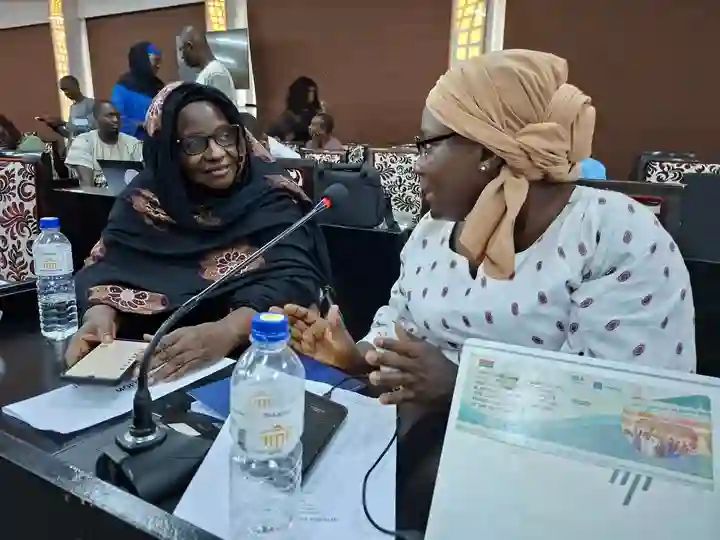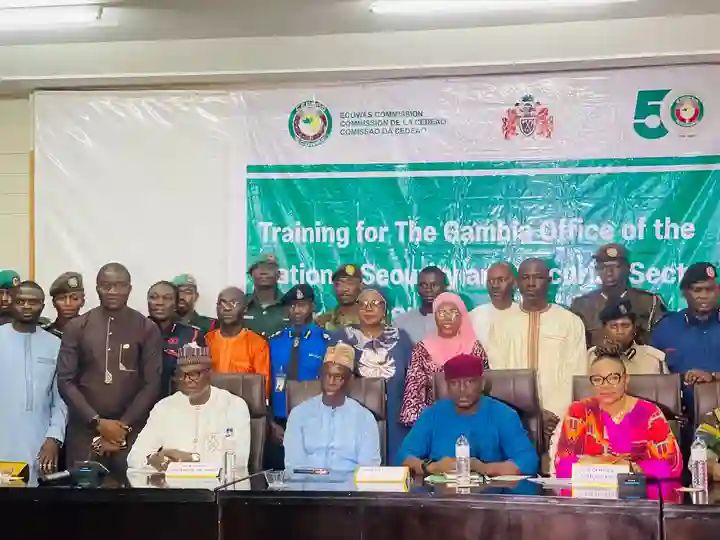Gambia Steps Up Security Sector Reform with ECOWAS-Backed Training for Civil Society, Media, and Stakeholders.
.
By Raymond Enoch.
An intensive five-day training on Security Sector Reform and Governance (SSRG) has been concluded in Banjul, The Gambia, strengthening the capacity of civil society, media practitioners, and key stakeholders to actively contribute to building a more democratic, accountable, and inclusive security architecture.

The training, organized by the Office of National Security with support from the Economic Community of West African States (ECOWAS), brought together both state and non-state actors in a collaborative environment aimed at deepening understanding of SSRG principles and mobilizing support for the country’s ongoing reform efforts.
Throughout the workshop, participants examined the core concepts of SSRG and engaged in robust discussions on the evolving roles of various actors in The Gambia’s reform trajectory. The sessions offered critical reflections on the progress made since the country’s democratic transition, particularly the strides taken to transform the security sector into a more transparent, citizen-focused institution.

However, participants also acknowledged the enduring challenges that remain—many of which stem from The Gambia’s authoritarian legacy. There was a broad consensus that meaningful and sustainable reform can only be achieved through inclusive participation, particularly the active involvement of civil society and the media in promoting transparency, accountability, and public trust.
Key thematic areas covered during the training included institutional oversight, democratic control of the security sector, rule of law, and public accountability. The workshop also addressed persistent structural barriers to reform and emphasized the need for cohesive and inclusive governance practices across the board.
Participants were introduced to the five strategic priority areas underpinning The Gambia’s national SSRG agenda. These priorities include confronting post-authoritarian legacies, ensuring robust democratic oversight through empowered institutions, and addressing systemic operational challenges that hinder progress.
Gender sensitivity and inclusivity were also central to the training. Facilitators highlighted the critical need to integrate gender perspectives in both policy formulation and implementation, stressing that genuine reform must reflect the experiences and needs of women and other marginalized groups.
Representatives from our organization, including the President, actively participated in the training and return equipped with enhanced knowledge and skills to engage in policy discourse, advocate for reforms, and contribute meaningfully to national efforts aimed at fostering a people-centered and democratically governed security sector.
As The Gambia continues to navigate its democratic transition, this training marks a significant milestone. It underscores the growing recognition that lasting security sector reform cannot be achieved in isolation, but through a broad-based and inclusive approach that places citizens at the heart of the process.









